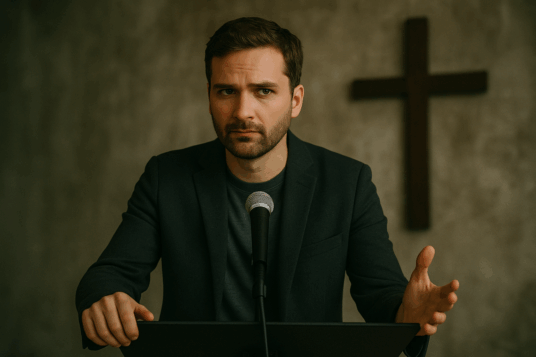Some men preach to be liked. Others to be applauded. But the prophetic preacher doesn’t have that luxury. He preaches because he must. There’s a word in his bones. A fire in his chest. And it won’t let him sit still.
The prophets of Scripture didn’t sign up for influence. God drafted them and dragged them into their calling. They didn’t go viral. They were exiled. And when they spoke, their words didn’t win fans. They exposed sin. They confronted kings. They pointed to righteousness, even when no one was asking for it.
That’s what makes the prophetic preacher different. He doesn’t just read the Bible—he feels the weight of it. Like Jeremiah, he doesn’t just quote God; he trembles under God’s voice. He doesn’t speak because he’s clever. He speaks because the silence would be worse.
The burden of the prophet is not anger, though it may come out as so, but grief. He speaks because he knows what God is like, and he sees what the people have become. He knows the holiness of God, and he knows the compromise of the Church. He sees both—and he can’t pretend not to. That dissonance creates what some have called holy discontent.
The modern church tends to sidestep this posture. On one end, you have preachers like Jonah—harsh, bitter, and separate from the people. They want to speak God’s judgment, but they don’t share God’s compassion. Their sermons are all heat, no heart.
On the other end is Esther. At least before her moment of courage. She fits in with the culture, blends in, and keeps her identity tucked away. She doesn’t want to offend or disrupt. She wants favor, not friction.
But prophetic preaching lives in a different space. It neither condemns from a distance nor conforms for approval. It walks into the tension. It risks everything to say what God has said—because silence is disobedience.
Not every pastor is called to function primarily as a prophet. But every pastor must make space for the prophetic. Because if no one tells the truth in love, the church will grow content in compromise.
Authority in this kind of preaching doesn’t come from volume. It doesn’t come from theological degrees. It comes from the conviction that God has spoken to him, and the preacher dares not alter or ignore it. Prophetic authority isn’t about being forceful, but about being faithful. And the weight of that call means the preacher bears the burden of preaching an unlikeable message, but worth declaring.
Prayer, solitude, and Scripture shape this prophetic role. It’s born in a man who weeps over the condition of the people and carries their burden to the Lord. He might never be the most polished or the most popular. But when he speaks, people sense that he’s come not just with words, but with a message that has cost him something.
In our time, with our distractions and compromises, we don’t just need more preachers—we need more prophets. Men and women who know God’s heart, feel His grief, and speak His Word with courage. Because without that kind of preaching, we’ll have churches empty of conviction and no change.
